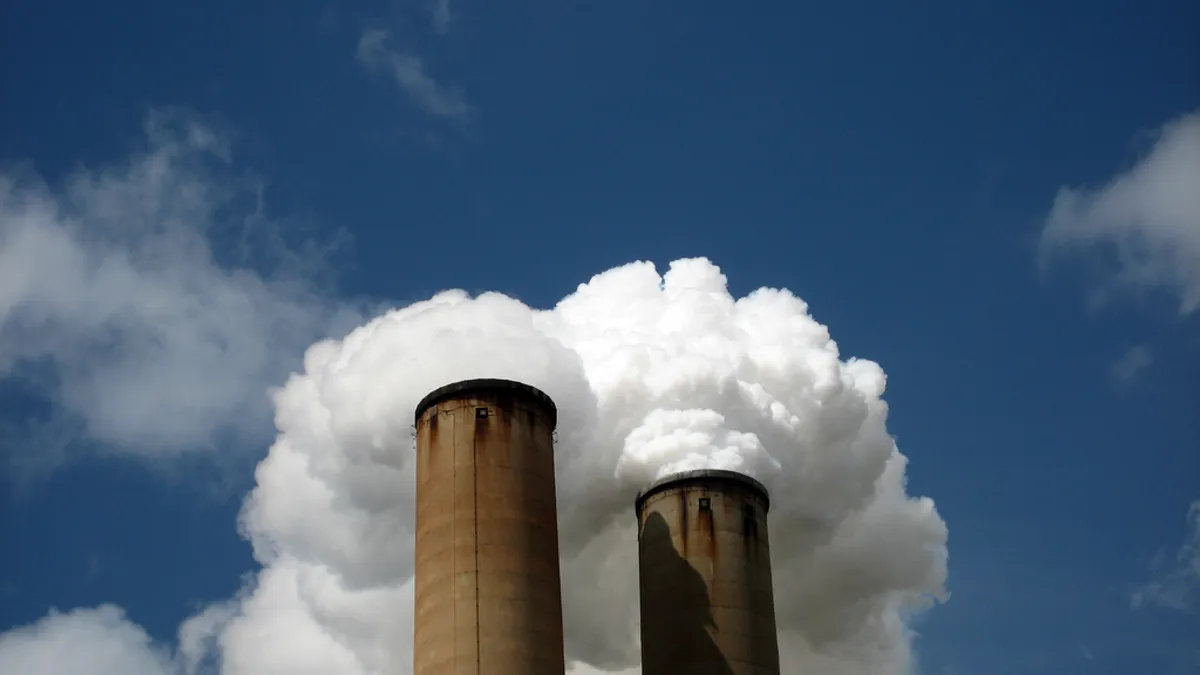Dive Brief:
- DTE Energy, Michigan's largest investor-owned utility, reiterated its plan to cut carbon emissions 80% from 2005 levels by 2050, saying it plans to eliminate coal from its fuel mix by 2040.
- The utility plans to achieve 30% carbon reduction by the early 2020s, 45% by 2030 and 75% by 2040. DTE has already cut carbon 15% from 2005 levels.
- DTE officials said the utility will replace retiring coal plants with 3.5 GW of natural gas generation and 6 GW of renewable energy in the coming years, while leaving a new nuclear facility on the table as a longer-term option. Fellow Michigan IOU Consumers Energy also announced a new renewable energy tariff for C&I customers this week.
Dive Insight:
DTE Energy's big carbon announcement on Tuesday actually contained little new information as the company had already committed to the 80% carbon reduction in its 2016 sustainability report.
But spokesperson Brian Corbett said the utility is now solidifying plans for that goal, including new grid modernization investments, efficiency measures and solicitations for thousands of megawatts of new gas and renewables.
By 2040, the utility will have eliminated coal from its resource mix, Corbett said, with an expected fuel mix of 40% gas, 30% wind, 20% nuclear and 10% solar. That would be a marked change from today's mix of 65% coal, 20% nuclear, 10% renewables and 5% gas. The utility plans to retire three coal plants in the early 2020s.
Looking out to 2050, the utility is keeping an expansion of the Fermi nuclear plant on the table as an option for new capacity, Corbett said. The utility applied for a federal permit to expand the plant in 2008, but the subsequent dip in natural gas prices kept the utility from applying to build.
In an interview last month, DTE CEO Gerry Anderson said the utility will take another look at the Fermi expansion in the mid-2020s. The plant currently supplies about 20% of the utility's power.
Alongside the DTE announcement, Consumers Energy filed for a new tariff with Michigan regulators that would allow C&I customers to purchase power specifically from new renewable energy projects, Midwest Energy News notes. Growing demand for renewables from corporate customers is pushing utilities across the country to devise similar green tariffs to avoid losing business to independent power providers.
Correction: This post has been updated to reflect that DTE will shut down three coal plants in the early 2020s, not 11 as the post originally stated. There are 11 coal generation units spread across the three plants.














